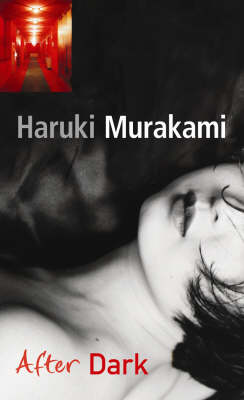Reviewed by clementine on
I really enjoyed the concept of this novel and found Murakami's writing atmospheric and evocative. He's very good at weaving little horrors and an air of unease into the banal. There's a creepiness to After Dark that lives quite outside of the mysterious events. And I enjoyed that it was described as if writing a scene analysis for a film class (something which I have had the displeasure of doing many times!), often going so far as to explicitly evoke the idea of a camera's positioning. It was an interesting stylistic choice which added a layer of separation between the reader and the story. The novel feels very dreamy and this positioning of the reader is a part of that for sure. It's an interesting exploration of day/night, physical/metaphysical, horror/banality. Lots of magic realism here, too, which is something that you'll know I enjoy if you've been following my reviews on here for awhile.
I feel that there is something lost in translation with Murakami's novels, and that something is generally the dialogue. I like his descriptive prose generally, but the dialogue seems forced and unnatural, and I'd have to assume that's down to the translation. It's not necessarily what the characters are saying but the words they use to say it - though some of what they say is pretty unnatural. The first interaction between Mari and Takahashi was pretty unbelievable, but I guess it's a part of the whole mysticism of night that the novel explores.
Now, I'm not somebody who needs all loose ends tied up - I don't mind that the Eri storyline ends mysteriously or that we never know what happens between Takahashi and Mari. I get that this book is temporally bound to about 7 hours, and that's fine. That's part of the concept and part of what makes it quite interesting. But, man, the storyline with the Chinese prostitute and the businessman just killed me. Murakami set it up to be so interesting - the businessman saying that he had to beat her up? What is going on here? Who is he? Who is she? What is their connection? He totally made it seem like there was more going on than the usual male violence towards sex workers, some sort of sinister plot. And then it's totally dropped! I mean, fine, write a novel set over the course of only a few hours and leave some things hanging, but don't start up with some sort of mystery plot and then just leave it!
I think that this was a novel with an interesting concept and a pretty good execution. Murakami's work is interesting to me in my limited exposure to it because I can appreciate a lot of its good qualities but I don't necessarily connect to it very strongly. That said, I enjoyed reading this one a lot more than I enjoyed reading 1Q84 but I don't think I'll be thinking of it in five years the way I still think of 1Q84 now! So, I don't know. Mixed review, I guess.
Reading updates
- Started reading
- 12 January, 2017: Finished reading
- 12 January, 2017: Reviewed
